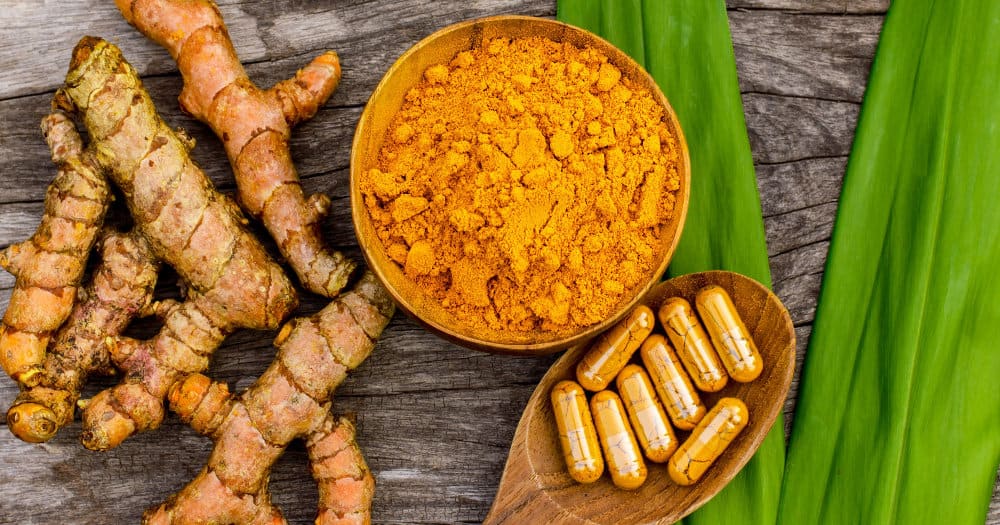If you enjoy eating or cooking curry, you may be familiar with turmeric, the main spice used to achieve that unique and delicious taste. Turmeric is also often used to flavor and color butter, cheese, and other similar food products.
While this spice is widely used as an ingredient for various dishes, the truth is that turmeric is also known for having significant health benefits due to its antioxidant and anti-inflammatory properties.
One of the main active ingredients in turmeric, known as curcumin, is said to contribute vastly to turmeric’s healing properties. However, curcumin has poor solubility and absorption, which makes it difficult to reap its benefits.
As such, there are some variations of the turmeric curcumin supplement that aim to address this problem by utilizing innovative biotechnologies.
If the premise of curcumin or turmeric, in general, intrigues you, then you may be interested to learn more about why turmeric is currently one of the most popular dietary supplements available today.
Continue reading to get a glimpse of the powerful healing properties of curcumin, and you may very well be convinced to add this to your arsenal of supplements.
Turmeric and Curcumin
So often are turmeric and curcumin put in the same sentence that you may have gotten confused about the two. In short, curcumin is an active compound found in turmeric. More specifically, it is one out of three curcuminoids in turmeric and is also known to be the most active.
On the other hand, turmeric is a plant root that is locally referred to as Indian saffron or yellow ginger in India. The three curcuminoids give turmeric its yellow color and can be extracted then turned into supplements to provide a higher potency of the compound.
Typically, turmeric root contains about 2 to 5% of curcumin, so it will be difficult to get a decent curcumin dosage by relying on turmeric in your diet alone. To add to this, the little curcumin you can get from turmeric tends to be flushed away easily due to poor solubility.
As a result, you will need to take a turmeric curcumin supplement containing higher curcumin levels if you want to get its full effects. As always, it will be best to consult your doctor before taking any dietary supplements to ensure that the curcumin works positively for you.
Healing Properties of Curcumin
Over the past few years, curcumin has drawn various scientists and researchers’ interest due to its promising healing and medicinal properties.
- Anti-Inflammation
Curcumin is constantly praised for being a natural anti-inflammatory compound, which can help your body combat chronic inflammation and possibly treat diseases. It is said to be so potent and effective that many studies are being conducted on curcumin’s effectiveness in treating and relieving the symptoms of osteoarthritis.
In line with its anti-inflammatory properties, curcumin may also help manage body fat by regulating lipid metabolism, which is largely known to cause obesity.
Some studies have shown that turmeric may have some weight-loss benefits since curcumin can suppress and inhibit inflammatory markers that may lead to obesity.
- Antioxidant
Another significant finding of curcumin is its antioxidant effects. Curcumin is a strong antioxidant that can help stimulate antioxidant enzymes’ production and keep free radicals away from your body. These antioxidant properties can also provide other health benefits, such as improved skin health, slower aging, and the like.
- Medicinal Properties
More studies still need to be conducted on curcumin’s effectiveness for treating other health conditions, but research today shows a lot of curcumin’s potential. One of the most promising topics of research today would be the role of curcumin in blocking or reducing the growth of tumors. Studies are looking into the possibility of reducing cancer cells, particularly those in colon cancer, but further research is still needed.
Likewise, curcumin may reduce the risk of heart diseases by regulating the factors that may cause such occurrences. It can help in reducing triglycerides and bad cholesterol, both of which are known to cause heart diseases and improve the endothelial function to regulate your blood pressure and clotting.
Generally, turmeric and curcumin are deemed to be safe, which may explain why several people incorporate it into their lifestyles today.
As there are still various areas that need to be studied about curcumin, there is no specific answer to how much you should take. It will be a good idea to consult with a health expert or your general physician to get a recommended dosage based on your health condition and their professional opinion.
